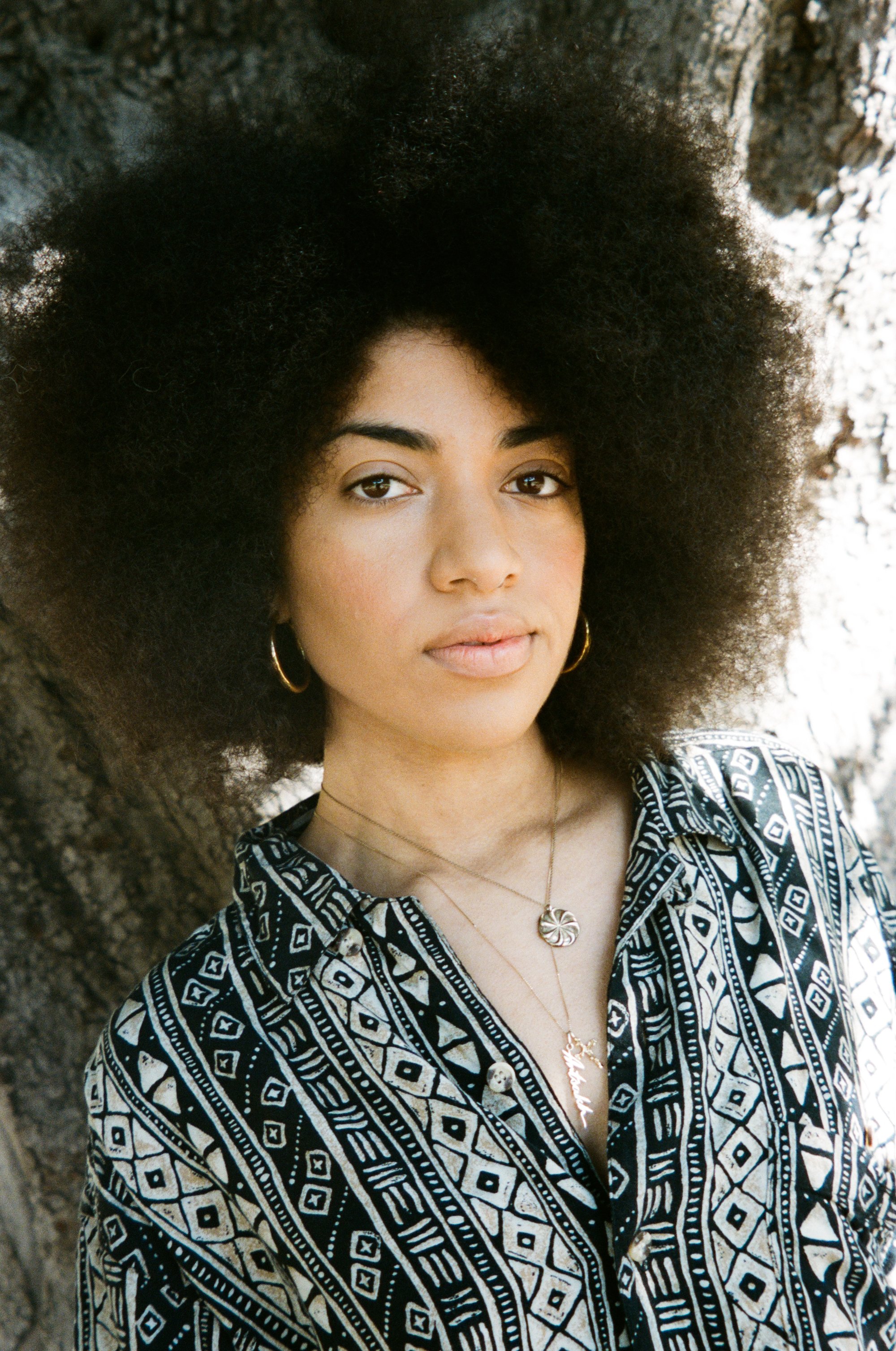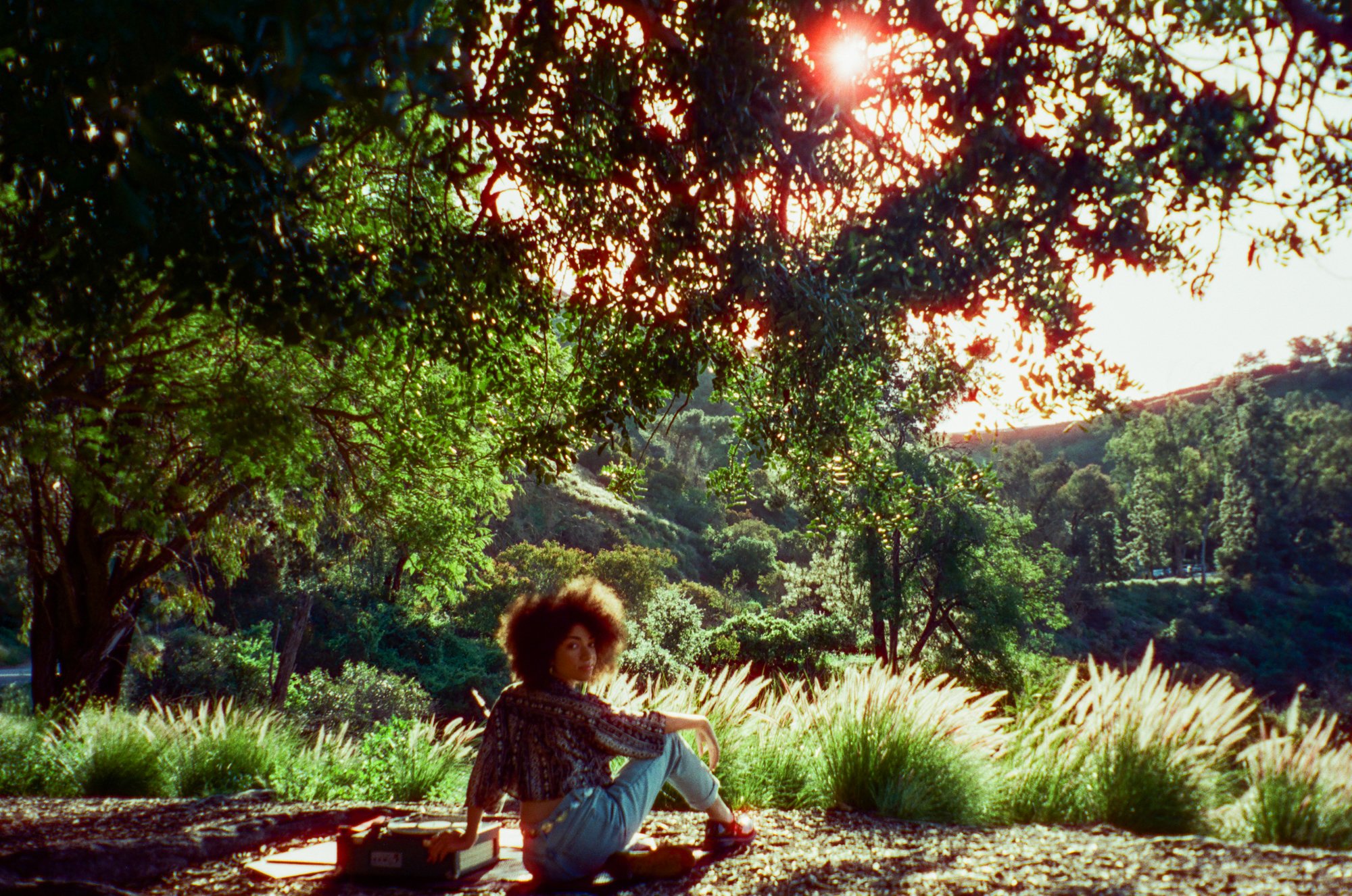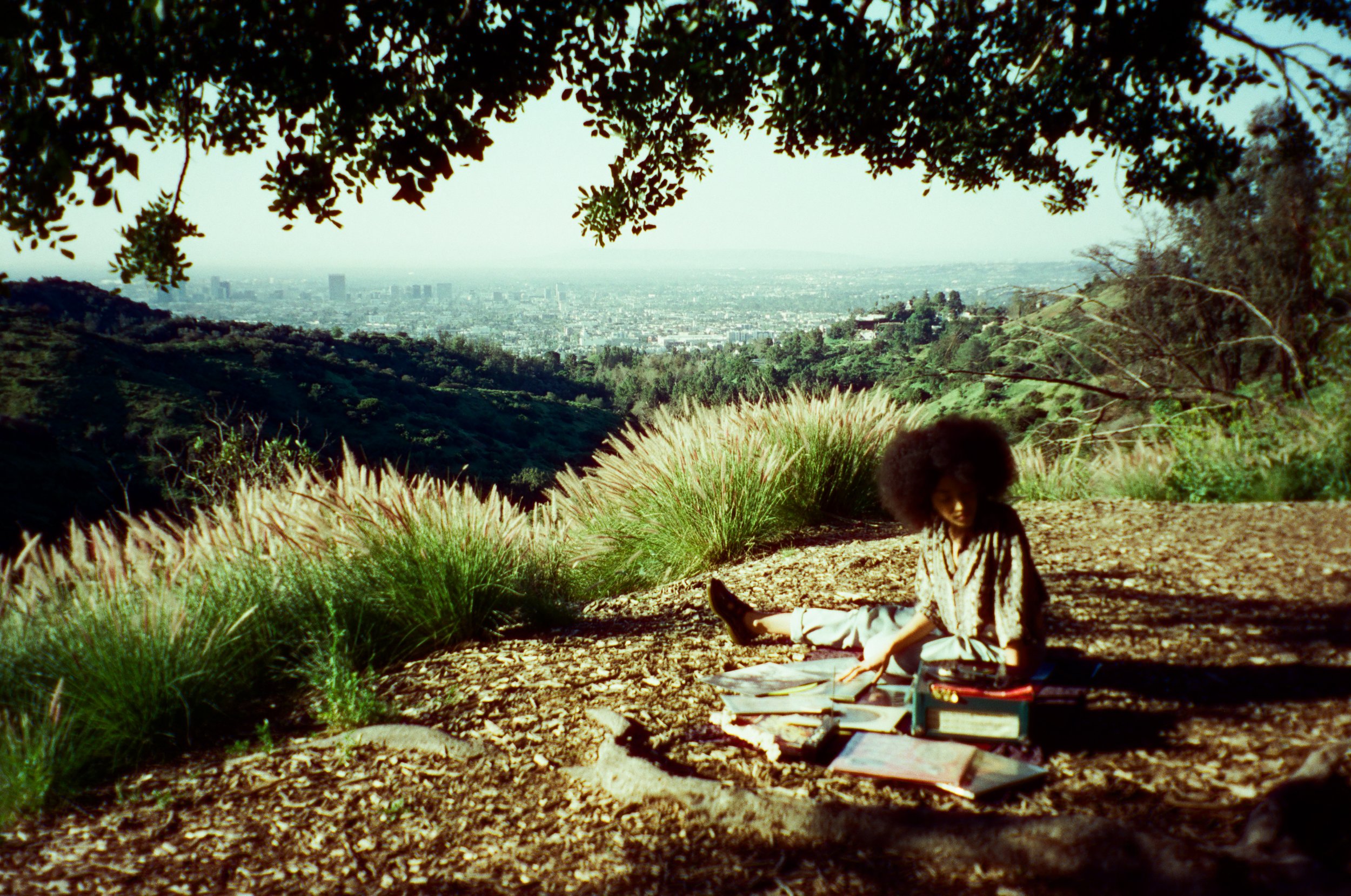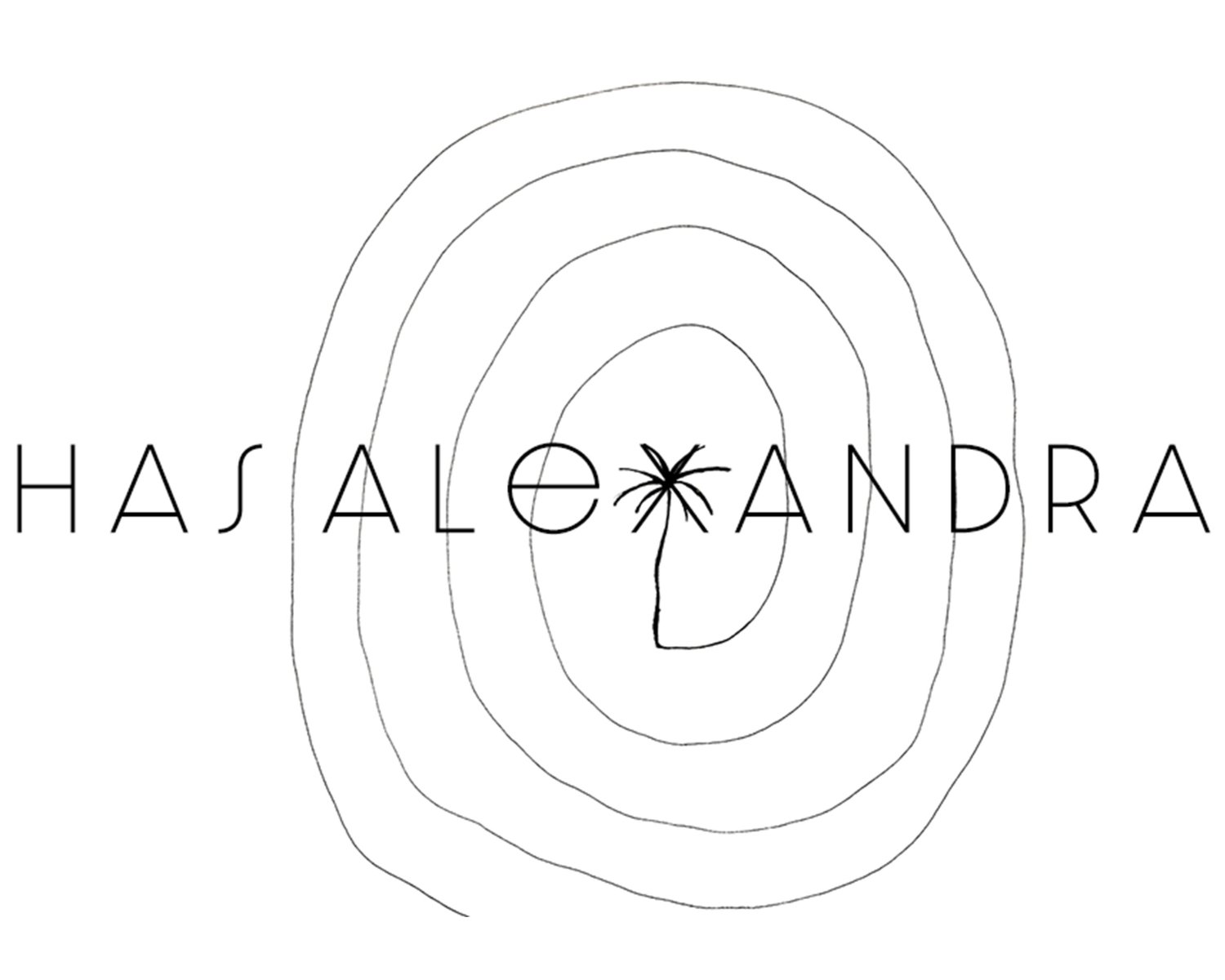
Carene
Armenia & Africa
my name is Carene Rose Mekertichyan
[KAIR-knee Rose MUH-kur-TEECH-yawn]
my divine roots are from Armenia & Africa.
i identify as Black and Armenian.
i was born in Chicago, Illinois, USA.
I’ve been living in Los Angeles, California since my conception with some family, college, and work induced breaks.



ROOTS
My dad’s roots are from Hayastan (Armenia). He was born in Yerevan and generations before him came from Van & Kars (formerly Western Armenia, modern day Eastern Turkey) and Nakhichevan (formerly Armenia, modern day Azerbaijan).
Those areas have been ethnically cleansed and colonized. There are gravestones and monuments, evidence of ancestors I will never find, because they’ve been desecrated and completely erased. Nakhichevan is the site of one of the worst cultural genocides. Two of my great grandparents survived The Armenian Genocide but my grandpapik (great-grandfather) was separated from his family. he was separated from his brother during their escape as he tried to cross a river holding onto an ox tail. His brother was taken by Turkish soldiers and he never saw him again. He spent some years at an orphanage in Jerusalem then eventually reunited with some family members, but they died of sickness. He passed before I was born but rarely spoke about his experience during the genocide.
My mom’s roots are from Africa. She was born on the South Side, Chicago and generations before her came from Louisiana. Unfortunately, we don’t have much documented history beyond that due to the legacy of chattel slavery in the US, which erased my ancestors’ history beyond American “Slave property” records I’ve found on the ancestry database.
My dad and his family left Armenia in 1991, during the first Artsakh liberation war and the collapse of the Soviet Union. There was so much instability and uncertainty at the time, they left everything behind to start over. They immigrated to Los Angeles because they knew there was a large Armenian diaspora here.
My mom wanted a change of pace so she left Chicago in the early 90s to pursue opportunities in Los Angeles as well.

have you visited the land?
I have not visited Armenia or the continent Africa yet but I hope to soon.
I would love to visit the land my armenian ancestors originally called home, but I can’t at this time because they are all in modern day Turkey & Azerbaijan.
I don’t have a specific region of Africa I feel connected to because as most Black people, that history is stolen from us.
do you speak the language?
I am not fluent in Armenian but I speak/understand basic things and I am learning to read and write. I used to speak it fluently when I was a child because my tatik (grandma) and papik (grandpa) would take care of me and teach me, but when I went to American school everyone spoke English so I used it less.
My family speaks with an Eastern Armenian Dialect as well as Russian because they grew up in the Soviet Union.



we shot at Griffith Park — why does that setting feel like home for you?
I grew up near Griffith Park and it has been the setting of so many special moments throughout my life.
I practiced removing my training wheels here, first played soccer with my dad and uncle here, hiked with my mom throughout my childhood here, my first pet — a dwarf hamster named Ennio is buried here, rode the ponies and train as a toddler here, adventured through the LA Zoo, Symphony in the Glen, and Shane’s inspiration — getting my first taste of childhood “independence” here, I had late night observatory star gazing with friends in high school here, I graduated high school at the Greek Theatre here, I fell in love here for the first and only time and that love grows to this day, I had my outdoor masked covid birthday here, I have witnessed the most breathtaking sunsets and city views here, I perform here and gather with my fellow Angelenos every summer since 2019 (excluding 2020) with my artistic home Independent Shakespeare Co. as part of the Griffith Park Free Shakespeare Festival.
This land is sacred to the Tongva people whose land I occupy and I am thankful for every way this land has held my Black Armenian body.

what do you love most about la?
I am a very proud Angeleno because I love LA so much. LA feels like home to me in every way. I’ve spent time away for many periods in my life and it has only made me appreciate it more.
I love the weather and the food. I love the diversity. Growing up my friends came from many backgrounds that differed from my own – Mexican, West Indian, Salvadoran, Korean, iranian, etc. and no matter what local institutions I’ve been part of, I’ve always been surrounded by other cultures and perspectives which is truly how we grow and decolonize our minds while holding space for others.
I’m an artist and a performer. I grew up surrounded by the arts – theater, film, music, entertainment. All the ways I love to express myself as an artist can be found in LA. We have such a range of live performance here, it’s not corporate like NY, it’s more community centered.
My favorite part of LA is the sense of community. I love the Black community in LA. I love the large Armenian community here.
It’s nice that people in LA actually know about Armenians. I was lucky enough to have access to my culture and not experience that isolation many Armenians in the Diaspora feel. I’ve connected with so many Armenians through my platform that are the only Armenians where they live.




what don’t you love about la?
I haven’t seen any effectively implemented solutions for the unhoused crisis, which has been ongoing since I was born. Cost of living is tough, I know it’s not as bad as NY but I wish our city was more affordable.
I also wish that less government funding was going to police that brutalize our LA community (which disproportionally affects Black and Brown communities the most and impacts all of us, Armenians included). I believe that more money should be allocated to agencies that help with mental health crises since police are not trained in a way to deescalate situations. The current system doesn’t work, trying to incrementally change doesn’t work either – it needs to be fixed from ground up in a way that centers equity and antiracism.

how has your experience in la affected your worldview?
Growing up in Los Angeles has made me someone who genuinely values diversity and equity. I’ve been surrounded by so much art and activism; I attended my first protest at 8 years old. That exposure is the reason I am as progressive as I am, the reason behind my drive to protest and creatively express my values… I don’t know if I would have been so exposed to as many people whose worldview and experience differs from my own anywhere else. That’s what’s made me more open-minded.

what are examples of intergenerational resilience in your culture?
Both of my cultures are extremely resilient and their resilience inspires me to keep going. We don’t give up when things are hard, we remain rooted in our cultures and communities and push through. The fact that we’re still here despite all the forces that have tried to destroy us (namely white supremacy, pan turkism and colonialism) and we’re not only surviving and resisting our oppressors, but trying to thrive and build a better future for those who come after us, shows courage and love.

what are examples of intergenerational trauma in your culture?
My ancestors experienced an immense amount of intergenerational trauma on both sides, which has been woven into the fabric of both of my cultures.
My dad made sure I knew the history of Armenians – from the Armenian Genocide, to the brutalities of the USSR, to war and corruption. This has resulted in losing family and community and our indigenous land; scattering, leaving everything behind, and starting over again and again.
My mom made sure I knew the history of Black Americans – the legacy of chattel slavery, mass incarceration, poverty, and other systemic issues that impact the Black community in America. This has impacted my own family and community through cycles of abuse and incarceration.
In America, the Armenian experience will never systemically mirror the Black experience. I feel my Blackness in my daily experience throughout my entire life; being pulled over by cops, followed in stores, and countless other microaggressions.

A key difference is that Armenians experience proximity to whiteness and some choose to claim whiteness to benefit from those privileges. That’s not to negate the racialized experience of Armenians through SWANAphobia and misplaced Islamophobia.
Armenians are SWANA (Southwest Asian / North African), specifically Caucasian. Many people don’t realize the term “Caucasian” has been colonized and doesn’t mean White; caucasian represents a people who comes from the Caucasus Mountains, of which Armenians are indigenous and have inhabited continuously since antiquity. The Caucasian Mountains are in west asia, colonially known as the Middle East.
Armenians in Armenia & Artsakh should have no trouble standing in solidarity with Black American folks as we share histories of genocide, dehumanization, and colonialism. Turkey & Azerbaijan steep Armenophobia, revisionist history, and genocide denial in their education system, media, and government propaganda which supports their continued land theft and genocide of indigenous Armenians.

*note This interview was done in may 2023. In September 2023, after decades of fighting for self-determination, 120,000 Armenians (including 30,000 children) were ethnically cleansed from our indigenous land of Artsakh after a 9 month blockade and large scale offensive on civilian population and infrastructures by Azerbaijan supported by Turkey.
Take action by exploring the resources in our Yerazad toolkit.
Donate to our first Yerazad fundraiser for displaced Artsakhtsis. yerazad coalition is fundraising on behalf of the Artsakh social developments and projects fund to build greenhouses and provide beekeeping opportunities for forcibly displaced families from Artsakh.
how do you break the cycle?
I choose to channel my pain into action through art and activism by doing what I can to dismantle systems that oppress us.
What I’m trying to learn to do now is find moments to thrive and embrace happiness and joy. In a system that doesn’t want you to be happy and at peace, joy in of itself is a form of resistance.

how do you honor your roots / culture?
I honor my roots and culture in everything I do. From activism and organizing in my community @Yerazadcoalition as well as my art.
Representing Black and Armenian voices and sharing our experiences is important to me. Whether it's through projects I’m developing or writing, that include my community’s perspective, or through performance which includes my body physically being on stage highlighting my / our existence.
On both sides, history says I shouldn’t be here and shouldn’t exist, but I am here, I am existing, and I am showcasing pride for both of my cultures and both of my communities.

CARENE is an artist, activist and educator, explore her work at
@CARENEROSE & carenerose.com

places in the local community that feel like home:
Black Market Flea (@blackmarketflea)
Urartu Coffee (@urartu_coffee)
people in the online community you are inspired by:
Kohar Avakian (@kavakian9 @nameitpod)
Arya Jemal (@aryajemal @yerazadcoalition)



